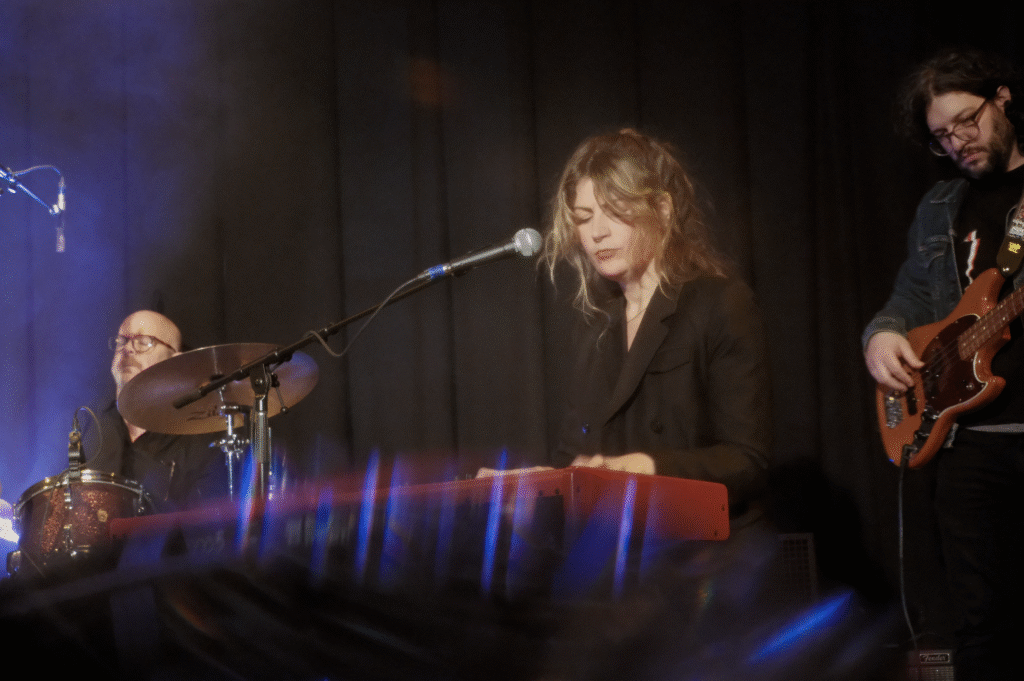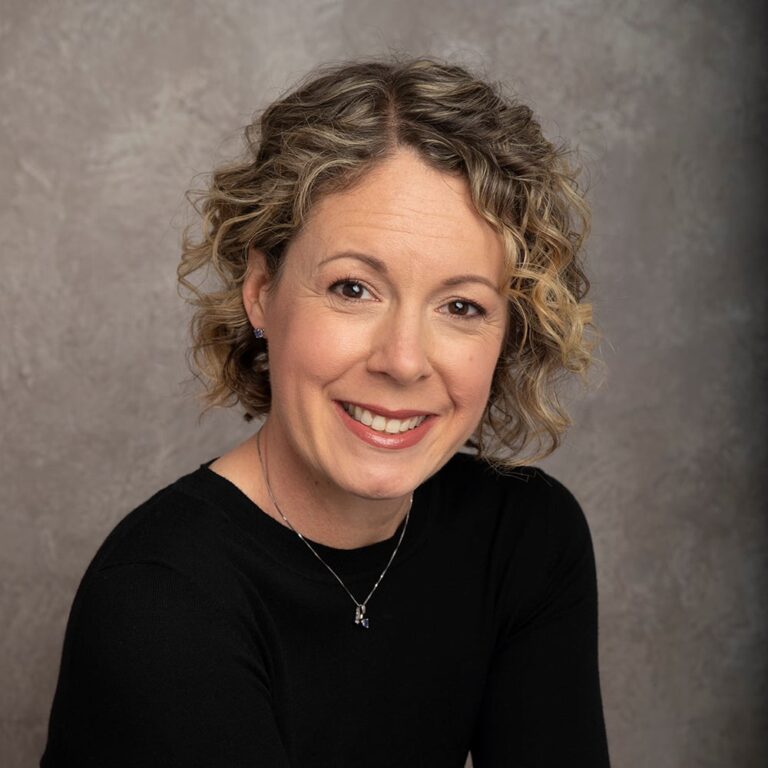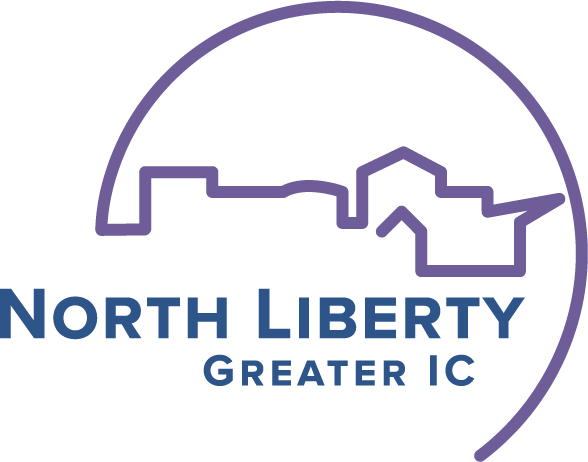Jordan Sellergren is the new owner and publisher of Little Village, the Iowa City-based alt weekly magazine where she has worked the past 10 years.
Jordan joins me to discuss why she purchased Little Village, what it has been like to take over operations during our current news climate, and her memories of the early days of Little Village. She also shares how Little Village stands out amongst the news outlets of Eastern Iowa, how her team approaches growth, and how she defines real success for herself and for her team.
I learned a lot and I think you will too.
Sponsored by MidWestOne Bank, this is the latest edition of the CBJ’s Real Success with Nate Kaeding and notable Iowa business and cultural leaders.
Real Success with Nate Kaeding was named Best Business Podcast at the 2024 Iowa Podcast Awards.
Nate Kaeding: You just purchased Little Village in January. Here you are, just a few months in, and it has to be one of the craziest times to be in news and media. What is it like to be in the news business right now?
Jordan: It is. It’s wild. So we have one staff news writer. Paul Brennan has been with us since 2017 and he spends his time, day in and day out, analyzing the news. He writes mostly about the state legislature, bills being passed, and whatever’s going on. Currently, he’s working on Kim Reynolds’ swan song and we just plug away at it every day. We can only do what we can do.
It’s just a “one foot in front of the other” thing to try not to beat your head against the wall. It can be a bit overwhelming in general for the public to just receive all of this information at once. It’s the same for us. So we do what we can, but outside of the news, all of the other stuff like cultural coverage, arts, theater, music and film are really important to us.
I mean, not only is a lot of the art a commentary on what’s happening, but yeah, it’s deeply impacted by what’s happening. So many arts nonprofits are being gutted. Museums are under threat. It’s overwhelming, but we put one foot in front of the other. We just do everything we can and we do our best to elevate what we believe deserves to be elevated. I feel bad for Paul because although he loves his work, he’s got a lot on his plate.
This magazine has been a staple in the Iowa City area all the way back since 2001.
Jordan: Yeah. We’ll be 24 in July, which is amazing.
Do you remember when you first picked up a Little Village magazine?
Jordan: So I was back from college and it was the summer in 2001. I was born in Burlington and raised in Cedar Rapids. I believe that I was there when they dropped off the very first issue. I had been living in the Twin Cities for college and so I was just back for the summer. I remember the distribution person bringing the stack in and setting it down.
Then I lived elsewhere for several years and came back to Iowa City in 2012, and as I was kind of establishing my roots here, I got to know (former Little Village publisher) Matt (Steele). I think he asked me to do some freelance ad design and eventually brought me on as staff. I started doing magazine layout and then eventually became art director when he wanted to focus his efforts on being a publisher. He had been the art director up until then, and that was when I just really fell in love with the job and with the work with my coworkers. The way we worked together was really special.
I also became quite interested in how our production was organized, so I kind of took on the role of production manager. At the time, it was twice a month. Now we’re monthly. I don’t even know how we did it, and every other weekend was just spent because we went to print at 6 a.m. on Monday. So anyway, the production management of it all was really, really, deeply important. I’ve been at Little Village for 10 years.
Think back to that period. What drew you to the magazine? What did you get from it?
Jordan: Well, I was gone from 2000 until 2010 and I was up in the Twin Cities, so I was reading the City Pages when I was in Minneapolis. But it still comes from the same “school,” the alt weekly school, which is this kind of progressive, subversive, independent media and journalism that is very much invested in arts and culture. It’s very interested in punching up. Another of an alt weekly’s purposes is to entertain, so the comics, satire, horoscopes, advice, etc. I was always really, really drawn to the entertainment aspect of it. I mean, I remember the first thing that I would read in Little Village would be the horoscopes. So when I came back here and came aboard at Little Village, that was kind of what I really pushed for in terms of content.
What do you find your readers today appreciate the most out of Little Village?
Jordan: Everybody’s different. We did the Roast of Des Moines recently. It’s a standup comedy event that we’ve been doing in Iowa City in partnership with the Iowa City Book Festival for the last 12 years, and this was our first roast in Des Moines. Somebody came up to me at the event and told me that they love the advice column.
People love the advice column and people deeply, deeply appreciate Paul Brennan’s coverage. We provide information on when the next protest is going to be. We actually received a lot of email signups after posting a story about the upcoming nationwide protest that happened a few Saturdays ago. It was the same Saturday as Mission Creek.
One of the other things we do that I know is really appreciated is that we cover the arts and not just to serve the audience, but the artists themselves. There might not be a whole lot of other outlets where you will be recognized. So I consider that one of the most essential services that we provide.
I want to go back on this concept of punching up. You’re a staff of six full-time folks. Where is Little Village competitively positioned to be a leader in terms of local news and local reporting? How do you view your role in the news paradigm that exists out there?
Jordan: Well, we have a canon of amazing freelancers for one. So we’ve got a lot of input. It’s a real community magazine. As far as our place in position with the other news outlets in Iowa, we get to be exactly who we are and we don’t have to apologize for it. We’ve established ourselves as the progressive alt weekly. There’s no question about how we are going to select the things we are going to cover, so we don’t have to tiptoe around things. I mean, we are excellent with fact checking. Our editors are amazing, reliable, and knowledgeable. I have so much faith in them, and we choose what we believe needs to be covered to serve the better good. I think a lot of news outlets do that, but we get to do it in a way that is a bit more subversive and unapologetic.
But we don’t publish op-eds. We publish letters to the editor very frequently, especially during city council races, but we don’t publish op-eds about community issues, news bills, etc. We’re pretty careful about how we approach our coverage. But that said, the direction from which we approach it is a big part of who we are and who we get to be.
I am sure there’s a lot of cutting that ends up on the editorial floor.
Jordan: There’s a lot of stuff that we just don’t have time to cover based on our staff size as far as print goes. Yeah, there’s definitely limitations there. But we also have a daily website, so there’s a lot of arts content and daily news content that goes up that you wouldn’t see in the magazine, and that’s really, really important to us. Not everybody reads the magazine and some people only read the magazine, but we have two newsletters and the Facebook pages. We really pack in as much as we possibly can given our small staff. But, like I said, we’ve got this huge canon of freelancers around all of the communities we cover, which are all over Eastern and Central Iowa. There are hundreds of freelancers who’ve been working with us, some of whom have been doing it for 20 or more years.
So how does that work? Are you relying on the freelancers to bring in interesting stories or ideas, or are you going out to your group of freelancers with things that need to be covered?
Jordan: Definitely both. A lot of times with the magazine, we will kind of conceptualize the magazine theme and identify what we think the most important stories to tell that month will be, and then generally we’ll assign those to our freelancers or staff who will cover them. But yeah, we just had somebody reach out yesterday who’s got some really, really interesting ideas that he’d like to add. He’d like to be on a beat basically, and he’ll start this summer or maybe in the fall as a contributor. We’re deeply excited about that.
Are you a goal oriented organization? What goals and measurables do you all have? Talk a bit about how you set goals and how you measure success at Little Village from a business perspective.
Jordan: So I’m a new business person. Prior to this, I was an artist. But growth for us is distribution. Currently, we’re distributing an average of 20,000 magazines per month around Central and Eastern Iowa. We’ve got about 800 distribution locations and we are the smallest in the Alt Weekly Conference. We’re the babies. I would say, with our web readership based on stats that Matt, the previous owner and publisher, left me with, we estimate our monthly readership to be about 150,000. That’s with web, newsletter, social, etc.
We’ve got a lot of people who could potentially be reading us who don’t necessarily even know we exist. There are people in Iowa City who don’t know that we exist. I was in the hospital for an event earlier in the spring last year, about a year ago, and none of my doctors knew about Little Village, which really surprised me. I will say that, despite that being a little bit disheartening, it also is an opportunity.
The stories that we’re publishing are generally quite interesting. There’s something for everybody, unless you’re deeply conservative perhaps, but even then you’d learn a lot as an art person. I’ve always been most drawn to imagery layout. So I think that there’s a lot that can be said in a caption. We will publish an article headline and then we’ll publish comments that have been made on social media about it. We’re not jerks about it, generally speaking, but all that stuff is really fun to read and it’s all part of the community conversation. It’s not a completely democratic format because our editors can toss out anything they want. But really this is a community magazine and the community is Iowa City, Cedar Rapids, Cedar Falls, Waterloo, the Quad Cities, Des Moines, Ames, and Dubuque most recently. We are your magazine.
Where are you on the “my head is spinning” scale from one to ten, now that you’re about a quarter of a year into this role?
Jordan: I wake up excited and usually, at some point during the day, I think, “Oh my God, how am I going to do this?” But I have a lot of faith in what we do. I want to grow because I want to be able to do more and I want to cover the state as well as we possibly can in the way that we do it. I think it’s an essential service to our readers. I mean, I don’t want to take anything over and put anybody out, but I do want to make sure my staff are comfortable without leaving important things out. With arts content, for instance, we’ve got a backup of album reviews, book reviews, and all of those things I consider really important. The more revenue we’re bringing in, the majority of which is advertising sales, the more we’re able to get those stories out there and give those people the elevated kind of platform that they deserve.
If you weren’t doing this, what would you be doing?
Jordan: I would love to open a restaurant, but I would never do that because I know it’s extremely hard and it would drive me insane. I’ve always wanted to open the kind of place where you can go drink coffee or you could drink a cocktail, that has a small stage, really good lighting, and a delightful patio that you can smoke on.
How do you define real success personally? We talked a lot about it from the Little Village perspective, but what does that mean to you?
Jordan: I think it’s giving people the space and the platform that they need to be their best selves. I have a 17-year-old son, and giving people space to grow and become the best version of themselves is hugely important. Not nitpicking and not micromanaging people, but just letting people live and being supportive. That’s success for me on a personal level, and on a Little Village level, it’s similar. I want my team to be happy. I want to make sure they have space to do their best work, and then I want the readers to be happy. I want the community to be happy.








